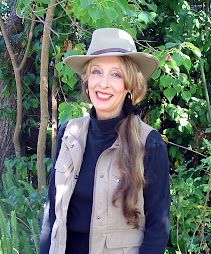
"Nothing on earth
Is more gentle and yielding than water
Yet nothing is stronger."
(Tao Te Ching 78 )
Water nurtures all life on earth. Falling from the sky to the ground as precipitation—rain or snow—it flows as surface water through rivers into lakes and oceans, or percolates deep into the earth through layers of sediment, becoming aquifers, vast underground lakes. With the sun’s heat, surface water evaporates, rising as vapor to form clouds, and the cycle begins again. There is always the same amount of water on earth. We drink the same water that the dinosaurs drank. The golden wheat fields of the American Midwest are irrigated by water from the Ogallala Aquifer, a massive underground lake that dates back to the Pleistocene era
Throughout its cycle, water takes many forms--from snowflakes, tiny lace mandallas from the sky, to shimmering icicles, to a summer’s day heavy with humidity, to the rapids of a roaring river.
Water can be beautiful or destructive. A few weeks ago, violent rain storms flooded El Salvador, washing out roads, trapping a group of students on a mountain top, destroying crops, leaving many people homeless and hungry. As the water cycle connects us all, so in the cycle of life, we are all connected. Many of us are reaching out to help, sending our thoughts and prayers and contributing what we can to Programa Velasco to help the disaster victims at http://programavelasco.org/diaster-relief-?lang=en
All contributions, large and small, are welcome.
The water cycle includes us all, and there’s a powerful parallel between water and the energies of our lives. Some energies are creative, life-sustaining; others, destructive streams of fear or greed. Each day, we contribute to the collective ener
Living creatively means becoming more mindful of our energies. Take a moment to ask yourself:
--Am I adding to the currents of fear flooding our planet?
--Or does my heart open in currents of compassion, loving kindness, to nurture and create?
Whatever challenges you are facing in your life,
Take a deep
Breathe out fear.
Breathe in love.
Connect with the eternal cycle of life
Right here, right now.
References:
For the Tao quote, Dreher, D. (2000). The Tao of Inner Peace. New York: Penguin Putnam.
To contribute to disaster relief, http://programavelasco.org/diaster-relief-?lang=en





